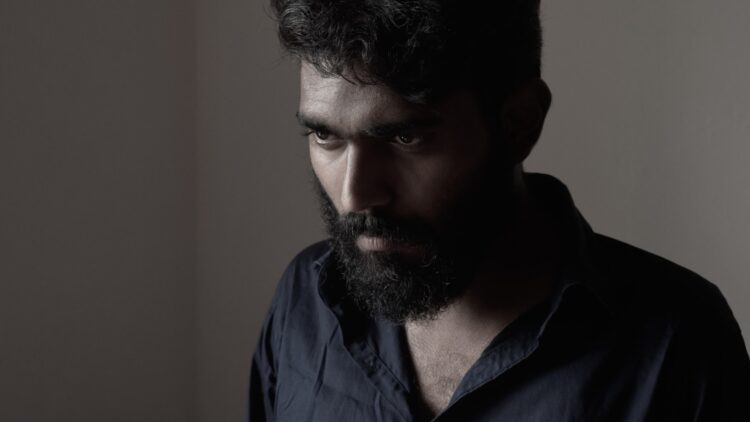
Some endings don’t come with a dramatic fight or final words. Sometimes, a man leaves long before he actually walks out the door. If you’ve been sensing something’s shifted but can’t quite name it, there are often quiet signs that his mind, and maybe even his heart, are already somewhere else. Here are 15 signs that your husband may be preparing to leave the marriage for good.
He stops confiding in you.

When something’s wrong or exciting in his life, he no longer brings it to you first—or at all. He shares less, offers vague answers, and doesn’t open up the way he used to. It’s not just about talking less—it’s about the growing silence where emotional connection used to live. If you feel like he’s become a stranger, it may be because he’s emotionally distancing himself for a reason.
He avoids serious conversations.

Any time you try to talk about your relationship, he either shuts it down or steers it somewhere else. He might say things like “not this again” or act like you’re making a big deal out of nothing. That avoidance isn’t just frustration—it’s often a sign he’s already decided something in his mind. If he won’t talk, it may be because he’s already mentally moved on.
He’s always irritated by you.

The smallest things set him off, like how you speak, how you move, even how you breathe. It feels like you can’t do anything right. He’s no longer patient or kind in his reactions. When irritation replaces affection and understanding, it’s often a sign that deeper resentment has taken root. And when that resentment lingers too long, it can be the final emotional push that leads someone out the door.
He’s distant but not fighting.

Oddly enough, the calm can be worse than the conflict. He no longer argues, not because he’s at peace, but because he’s checked out. Fights require emotional energy. If he’s done investing in the relationship, he won’t waste energy debating. The quiet becomes unnerving, and the lack of reaction can leave you feeling like you’re the only one still trying to save something that’s already gone in his mind.
He pulls away physically.

The hugs stop. The kisses are rare. He barely brushes against you when you pass each other. Physical closeness used to be second nature, but now there’s a wall between you. And he’s the one who built it. When touch disappears, especially without explanation, it’s not usually about stress or being tired. It’s often a reflection of emotional disconnection and an early sign of detachment.
He’s overly focused on himself.

He suddenly starts investing more in his appearance, his work, or his hobbies, but without including you. It’s not the self-care that’s the issue. It’s the shift in who he’s doing it for. If his world seems to revolve entirely around himself and there’s no room for “we” anymore, it could mean he’s already imagining a life where he stands alone. And possibly, he’s preparing to make that life real.
He rarely makes eye contact.

This one seems small but it carries weight. When someone avoids your gaze, it often means they’re holding back emotionally, or carrying guilt. He might glance past you, keep his eyes on his phone, or just not meet your stare the way he used to. That change in connection can feel subtle but speaks volumes. When eye contact disappears, it often reflects a deeper emotional drift that’s hard to reverse.
He stops making plans.

Vacations, anniversaries, even weekend outings—he doesn’t initiate or contribute. Everything is left open-ended, or he seems reluctant to commit. When a man’s heart is still in it, he imagines a future together. When it’s not, he avoids it altogether. If he no longer talks about what’s next, or responds with indifference when you do, it might mean he’s not planning to be around for that future.
He’s secretive about his time.

Suddenly, you don’t know where he is, who he’s with, or what he’s doing, and he’s vague when asked. His schedule feels murky, and explanations are thinner than usual. If he starts guarding his time without reason or gets defensive about basic questions, that’s not just privacy—it’s distance. And when that distance grows without effort to bridge it, something deeper may be shifting behind the scenes.
He stops showing empathy.

When you’re upset, he seems cold. When something bad happens, he barely reacts. His tone might feel dismissive, like your feelings are an inconvenience. When empathy disappears, it’s often a sign someone is no longer emotionally invested. If he no longer cares how you feel, it could be because he’s already emotionally preparing for life without you.
He spends less time at home.

Late nights at work. New hobbies that don’t involve you. Random errands that stretch for hours. One missed dinner becomes two, then five. The home becomes a place he returns to out of obligation, not desire. He might not be cheating. He’s just no longer anchored to the home or what it represents. When someone spends less time where you are, it’s often because they no longer feel tied to it.
He stops saying “I love you”.

The words fade. Maybe they’re gone completely, or maybe he only says them when prompted, flat and robotic. You don’t feel the warmth anymore—even when the phrase is spoken. Love can’t be measured in words alone, but when those words disappear, they often signal something deeper. If he once said it without hesitation and now avoids it altogether, it may be because he no longer feels it—or wishes he didn’t.
He starts rewriting the past.

He begins to bring up old arguments, past mistakes, or grievances that seemed long buried. But now, they’re being reframed. He paints the relationship as something that’s never worked, as if trying to justify a future without it. When someone’s rewriting history, it’s often because they’ve already made a decision—they just need to make peace with it.That rewriting is a sign he’s moving toward the exit.
He avoids being accountable.

He doesn’t apologize. He doesn’t admit fault. Everything is either your problem or “not a big deal.” If you confront him about the relationship, he becomes defensive or dismissive. Accountability takes effort, and when someone’s already one foot out the door, they stop trying to repair what’s broken. If he won’t take responsibility, it’s often because he’s already detached from the outcome of the marriage.
You feel like you’re preparing yourself.

You start replaying conversations, watching for clues, or bracing for the moment he leaves. You begin mentally preparing for life on your own, even if you haven’t admitted it out loud. That’s not just anxiety. It’s your intuition picking up on what his actions are already saying. When you feel the disconnect, even before anything official happens, it’s often because the emotional departure has already begun.

